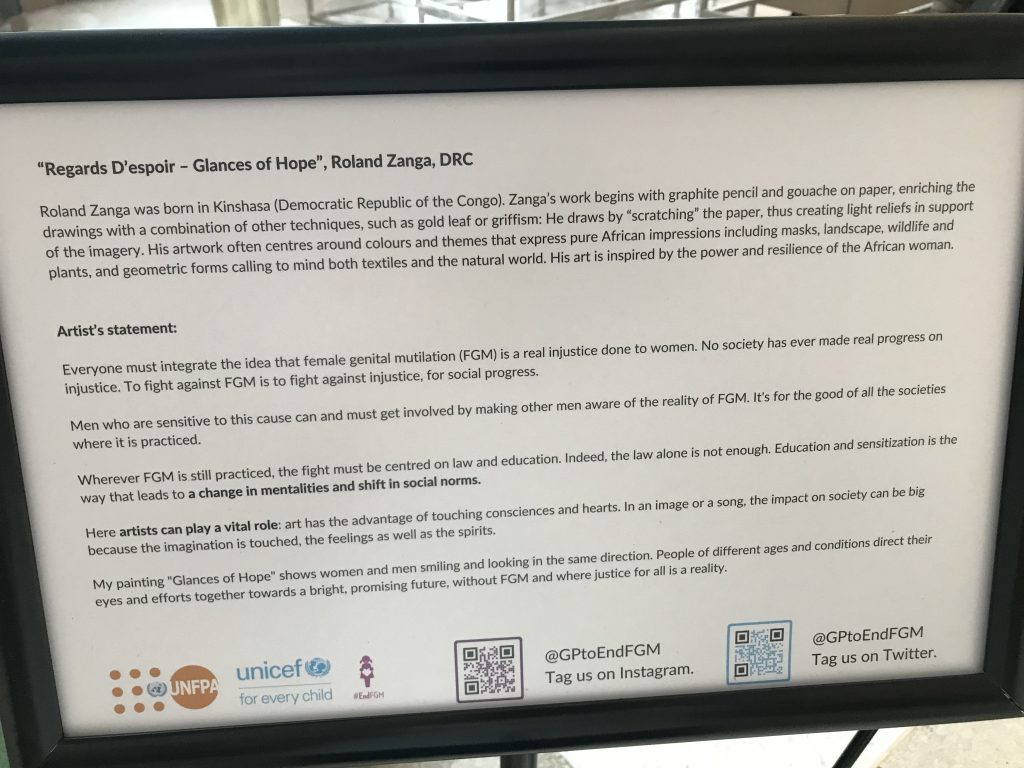UN Intern Attends Transforming Education Summit


Hello,
My name is Jill Buffetta. I am a junior at Marymount Manhattan College double majoring in International Studies and Politics and Human Rights. For the Fall 2022 semester I have the honor of interning with Sister Dusty at the Dominican Leadership Conference, an NGO in consultative status with ECOSOC. Over the past weekend I was able to attend the Transforming Education Summit 2022 at the United Nations. The summit aimed to address the global crisis in education and building a future towards equity, inclusion, quality, and relevance. Five recurrent topics at the Summit that I feel particularly pertain to the Dominican Leadership Conference’s mission are people with disabilities’ education, climate change impacting youth education, refugees education, brain drain, and women’s education. Firstly, in order to truly transform education and healthy achievements we need to look at the most marginalized and vulnerable group: persons with disabilities. Every child with a disability deserves to have the oppurtunity to reach their full potential and the education system currently in place is not allowing them to do so. Maria Alexendrova spoke at the summit recalling her own personal accounts being faced by discrimination and stereotypes placed on her by teachers, parents, and peers at school that diminished the perception of herself and riddled her with self-doubt. Many people with disabilities have a hard time finishing primary school, let alone achieving a secondary education because of the difficulties they face in school. Maria Alexendrova, a proud university student, is here to prove everybody wrong and teach us how we can help every child with disabilities reach their full potential, just as she is doing. We can start by eradicating stereotypes, urging schools to provide a safe and equitable learning environment, taking into account every student’s individual needs, and urging governments to enact disability friendly policies.
Climate change is another huge obstacle that has been affecting fair learning opportunities for children. More specifically, small island developing countries are being hit with the worst impacts of climate change affecting learning. As the numbers of natural disasters increase, the number of children who are denied access to schools, course materials, and proper teaching methods also increase. Yuv Sungkur, a young man from Mauritius, spoke at the summit speaking on his personal experience of how climate change became a barrier between him and a proper education. If Mauritius experienced a bad flood or hurricane, entire towns’ electricity might go out leaving the kids who had their homework online, unable to do so. If the school got flooded, tons of books may have gotten ruined and never replaced. Yuv Sungkur points out how the climate crisis is denying these children equal opportunity to learn in a safe learning environment. No education should be challenged by human-induced climate change.
Thirdly, a part of transforming education that often gets left out of important conversations is refugee’s education. Adriana Figueredo, a refugee from Mexico, uses her voice at the education summit to let us all know that expanding refugee education is “a change this world is in desperate need of.” Refugees have already been forced to flee their homes; they shouldn’t be forced to flee education. We need to give these young refugees the continuous learning and funding necessary to grow and sustain their engagements. In the honor of achieving the United Nations Sustainable Development Goals, “leave no one behind,” refugee youth needs to be recognized and included at every point in the education cycle.
Another important topic brought up at the Transforming Education Summit was the topic of brain drain. Veronica Pereira, from Timor-Leste mentions the draining education cycle we see many developing countries suffer from, known as “brain drain.” Young people have to leave their home for a quality education, and any secondary education. Education is the key to any nation’s development, therefore one should be able to receive a proper education wherever they are in the world, no matter where they are born. Everyone knows that the youth is the future but if that youth must go abroad in order to find decent work at a decent wage, if they are so lucky to even do so, how can a nation successfully build and develop? It affects the “left behind nation’s” economic growth and future outlook, while only helping the “newly moved to nation”. The brain drain cycle is a serious one and cannot be ignored.
Lastly, a very prominent conversation when speaking about transforming education are the stereotypes surrounding women in education. In some countries, women are still not permitted to receive education. In others, women are not allowed to take any math or science based classes. And in many countries, women are not encouraged to go to see school because there isn’t any “point,” since they won’t have the same job opportunities that men are awarded. Women from all over the globe have always had a disadvantage in education compared to men. Education should increase equality in the world, not widen the gap. We need to transform education to become a factor of reducing inequality by providing the same rights to everybody and creating the conditions for equal access to the benefits of development. The Dominican Leadership Conference works towards, “advocating for women, girls, migrants, refugees, and social/sustainable development.” which the Transforming Education Summit is also advocating and galvanizing action for. As I continue my internship I hope to take in all knowledge I acquire with regards to achieving sustainability and put it to use by advocating for others and educating those who can help.
 USA
USA


